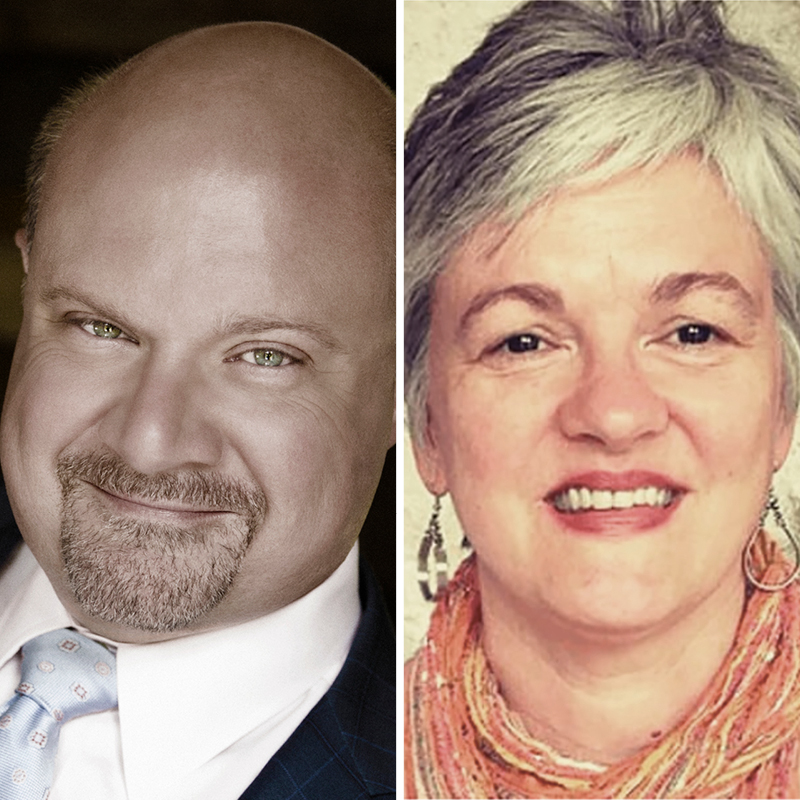Randall Scarlata & Laura Ward | Saturday, February 11, 2023 · 7:30pm | Salon Piano Series | Concert in Madison, WI

Randall Scarlata & Laura Ward
Saturday, February 11, 2023 · 7:30pm
Program included: Duparc, Fauré, Ravel, Caplet, Benjamin Boyle
Baritone Randall Scarlata’s repertoire spans five centuries and sixteen languages. Laura Ward is a distinguished collaborative pianist known for both her technical ability and vast knowledge of repertoire and styles.

Program
L’invitation au voyage - Henri Duparc
Le manoir de Rosamonde - Henri Duparc
Phidylé - Henri Duparc
La bonne chanson, Op. 61 - Gabriel Fauré
Trois fables de Jean de la Fontaine - André Caplet
Le passage des rêves, Op. 15 - Benjamin C.S. Boyle
Don Quichotte à Dulcinée - Maurice Ravel
Masterclass
Concert Review
By Ruben Piirainen
The late winter rain storm provided a lush and impressionistic aural backdrop for the solo piano recital by Drew Petersen at Farley's House of Pianos on March 5, 2022. I like to think that Petersen played the Ravel Sonatine (1906) with particular awareness of his elegant phrasing being incidentally accompanied by the dreamy murmur of raindrops on the roof. Indeed, even before playing a single note of the first movement, he was already listening; it was as if he stepped into the stream of a piece already in progress, and the notes flowed beneath his fingers, spinning long, beautiful phrases both sweet and lyrical. The voicing was always conspicuous but so gracefully executed, even among passages of rapid harmonic changes. The second movement treated the audience to even more elegance with moments of real orchestral color. Particularly lovely was the understated grandeur of the final moments of this movement. Moving into the third movement, Petersen continued his miniaturist treatment of this piece in terms of both presentation and dynamics. I found myself marveling at the wide spectrum of pianistic colors he achieved while never once exceeding a mezzo forte dynamic.
The Sonatine was characterized throughout by this miniaturist approach, tantalizing us with both impressive control and by suggesting the boldness of colors we knew were waiting for us in the next set, Ravel's Gaspard de la Nuit (1908), a musical fantasia on three poems by Aloysius Bertrand. Ravel is said to have set out to compose a piano work of “transcendent virtuosity” that would be more difficult than what was considered to be the most difficult piano work at the time, Balakirev's Islamey. It remains an example of extreme virtuosity to this day and whenever a pianist dares to take up its yoke I, for one, am compelled to pay attention.
The first movement, Ondine, is a portrait of the mythical water nymph and her exploits. Petersen achieved delicate fluttering at the beginning of Ondine by remaining completely flexible in his technique while barely touching the keys. His gift for voicing even in the midst of technically demanding passages was again on full display, and when he finally played the first real forte dynamic of the evening, the excitement generated by this new and vivid color was enthralling. Still, the whole movement felt like it was being given the intimate approach we heard in the Sonatine.
Le Gibet, the second movement of Gaspard, hypnotized with its relentlessly tolling B-flat octaves throughout, handled with clarity and consistency by Petersen. The music is episodic in nature, and Ravel traps us in a sense of psychological terror with cascades of grotesque chords, hints of jazz, quiet suspense, and macabre tone colors. Petersen approached the music with a quiet demeanor and gave no physical hint to the demands of the music. His stillness lulled the room into a suffocating dread as we saw the corpse swinging from the gallows through his interpretation of this merciless, inexorable music.
The most audaciously virtuosic movement of the set closes the work, Scarbo. The audience was enchanted by the seemingly impossible speed and clarity of the repeated notes in the first theme. Several passages had the effect of an avalanche as the entire range of the piano was traversed in both directions with electrifying dynamics. Petersen seemed to take particular delight in the odd passage of meandering seconds in the right hand, and his technique was well practiced to accommodate its unusual demands. Prior to this passage of seconds, the music had momentarily begun to feel a little careful, and part of the excitement was tempered by a certain lack of impetuousness. The audience wants to feel as if the performer here is walking a tightrope without a net, and, at times, the presence of the net was felt.
After a brief intermission, Petersen performed the Sonata no. 2, Op. 36 by Rachmaninoff (originally composed in 1913, revised in 1931). He dispensed with any sense of his previous miniaturist handling of the music and played the entire sonata with a bravado and boldness that revealed his profound love of this music. The first movement was awash with textures even denser and more chromatic than we heard in any of the Ravel pieces, and yet he continued bringing to the forefront the lines we needed to hear. And for a late Romantic sonata, I must commend his ability to very clearly communicate the classical sonata form.
The second movement is a buffet of textures, colors, and exquisite melody. Petersen coaxed out every sensuous nuance and guided us through a landscape of delicate beauty, languid phrases, and passionate outbursts with an eager need to share the secrets he discovered in this score. Then came the third movement which was characterized by jaw-dropping virtuosity and all of the fearlessness that I wanted to hear in Scarbo. It was an exhilarating finale to an evening of exquisite piano artistry.
The audience wanted more. Petersen obliged with two encores, both by Chopin. The exhausting work of Ravel and Rachmaninoff now complete, Petersen simply luxuriated in the cantabile melodies of Chopin and effectively gave the audience a very satisfying musical digestif. The rain had stopped, the sounds of dazzling piano virtuosity still ringing in our ears, the whole audience abuzz with the excitement of superb music making – truly a recital to remember and treasure.
Ruben Piirainen is on the piano faculty at the Wisconsin Conservatory of Music in Milwaukee, WI. He has appeared with the Milwaukee Symphony Orchestra, Florentine Opera, Skylight Music Theatre, Present Music, Opera for the Young, Milwaukee Opera Theatre, Brew City Opera, and other regional performing arts groups. He is a recording artist with Hal Leonard Corporation and has appeared in recitals across the country.
